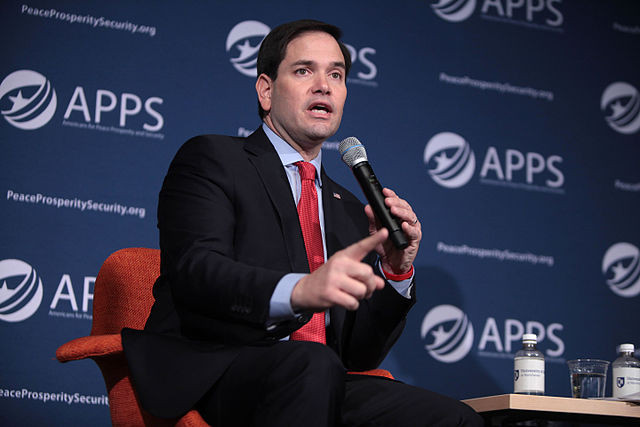President-elect Donald Trump is poised to nominate Florida Senator Marco Rubio as his secretary of state, according to multiple sources familiar with the deliberations, signaling a strategic pivot as he shapes his foreign policy team for a second term. The anticipated appointment, reported first by The New York Times, reflects Trump's effort to combine loyalty within his political circle with a broadened foreign policy reach.
Discussions about the nomination reportedly intensified over the past several days, with Trump leaning toward Rubio after initially considering Ric Grenell, the former ambassador to Germany and acting director of national intelligence during his first administration. While no formal offer has been extended, sources indicate Rubio is seen as a candidate capable of balancing Trump's "America First" stance with broader diplomatic considerations. "Marco is a little more hawkish than the incoming president, but he is aligned with Trump on several critical areas," said a Trump ally.
Rubio's resume makes him a compelling pick: as a senior member of both the Senate Intelligence and Foreign Relations Committees, he has built a reputation as a vocal critic of China and a staunch defender of U.S. strategic interests. His legislative record includes pushing for limits on tax credits for electric vehicle batteries involving Chinese technology and pressing FBI officials on potential Chinese influence through social media platforms such as TikTok. Such positions have resonated with Trump's political base and bolster Rubio's standing within the GOP.
For Rubio, the role would mark a continuation of his influence on U.S. foreign policy-a position he has cultivated since his own failed bid for the presidency in 2016. Initially, his relationship with Trump was marked by acrimony; Rubio famously called Trump a "con artist" during the Republican primaries. However, the two have since mended fences, forming a partnership rooted in shared policy priorities.
While many in Trump's orbit see Rubio's nomination as a serious move, some supporters note a contrast between Rubio's style and the hardline stance Trump often projects. "Trump's base needs to see that he is picking serious, qualified leaders," said one senior administration official. "Rubio is someone who fits that bill, even if he doesn't embody every MAGA talking point."
The possibility of Rubio's appointment raises questions about the State Department's trajectory in a second Trump term. Career diplomats have expressed relief at the prospect of Rubio, contrasting him with Grenell, whose approach during his previous tenure stirred concerns about politicization. Under Trump's initial term, the department saw a steep decline in senior-level diplomats-a trend that diplomatic circles hope can be reversed under Rubio's leadership.
The appointment also carries political implications for Florida, as Rubio's Senate seat would need to be filled if he joins the administration. Governor Ron DeSantis would be tasked with selecting a replacement, who would serve until a special election in 2026. This scenario could shape Florida's political landscape for years to come.
Rubio's nomination would be part of a broader wave of Trump administration appointments. On Monday, Trump announced plans to nominate former Rep. Lee Zeldin as the Environmental Protection Agency's chief and Rep. Mike Waltz as national security adviser. The announcements follow Trump's decision to appoint Susie Wiles, a trusted campaign manager, as White House chief of staff, and immigration hard-liner Tom Homan as "border czar."
Despite these high-profile moves, Trump's return to office remains a polarizing topic. Foreign policy continues to divide his base, particularly regarding balancing isolationist and interventionist tendencies. Rubio's nomination as secretary of state reflects an effort to straddle this divide while sending a message of seriousness and experience on the global stage.






